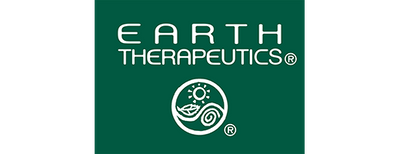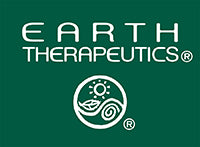One look at the news on any given day will drive anyone to drink. That’s a common refrain that encapsulates both the state of the world and how we as a country tend to wash away our grievances with a cold one.
Such a bummer, then, when a recent headline dropped that had me side-eyeing a sweating bottle of prosecco I’d just cracked open for my end-of-the-day wine-down:
It's time to put cancer warning labels on alcohol, experts say (CBC)
Yeah, that’ll do it.
For a while before then, I’d toyed with the idea of cutting back on the booze. You know, experiment with a damp lifestyle. Just a glass or two of wine, maybe a well-prepared cocktail a few times a week. That sounded like a healthy balance.
Sound advice, right? If you were around in the 90s, you probably remember the scientific research followed by a big, splashy ad campaign touting the heart-healthy benefits of a glass of good red wine. Turns out that was all bull, the science debunked, and we’ve been collectively living a lie ever since.
(For a great breakdown of the antioxidant wine myth, check out the French Paradox episode of Maintenance Phase podcast.)
I grew up around wine. I wasn’t raised on a vineyard or anything cool like that, but my grandfather was a massive oenophile and at the time of his passing, he had over 4000 bottles in his collection. While other kids learned their ABC’s, I learned my AOC’s and the 3Vs (varietals, vintages, and vines). Wine has always been in my blood, but never more literally so than during the lock down days of the pandemic.

Chasing the vibes of the last “best night ever”.
I wasn’t alone. Loads of folks trapped at home uncorked and uncapped adult beverages to mollify the tedium, anxiety, or general despair of quarantine. Alcohol consumption jumped the first year of pandemic:
Alcohol consumption rose among adults over age 30 by 14% during the pandemic, with a 41% increase in women heavily drinking. (Cedars Sinai)
Great news for Big Booze! But for the rest of us? Depression, anxiety, and sleeplessness increased over the last few years.
And so, a growing backlash was born. Millennials, the generation that killed Applebee’s, fabric softener, and napkins, is just saying no. Gen Z is saying hell no. With a growing body of evidence of the deleterious effects of moderate and even casual drinking, as well as their own anecdotal experiences, the risk to reward ratio seems grossly out of balance.
(Isabella) realized she didn’t particularly like the feeling of being drunk – or the regret and embarrassment she felt the next day over her tipsy self’s actions. “I look back like, that was so embarrassing, I got on top of the bar,” Isabella said. “I don’t wanna look back and feel that way anymore.” (Teen Vogue)

I, too, have danced on top of bars, but in my defense, it was a spot known for it so I regret nothing. But what I do regret is that the days of curing a gnarly hangover with a green juice and a sausage, egg, and cheese are so far in my rear view they could technically be categorized as nostalgia. Even cutting back, way back, left a different kind of hangover: the megrims, aka a sticky, low-level depression that lingered for days.
Just like Millennials and Gen Z, I too, hate feeling like hot garbage – and so my sober curiosity was piqued. I found myself wanting to make some real changes in my life. I’m not really a New Year’s resolution girlie, but the idea of a 30-day challenge held real appeal. In just a month, I could be born anew with a recovering liver and a totally different mindset!
Fellow booze buddies, cocktail connoisseurs, and craft beer nerds, I have some really bad news: cutting out alcohol has been life changing…and in a really great way. I know, I know, not what you wanted to hear and honestly, it’s not for everyone. But if you’ve been curious about what life could look like on the other side, here’s a handful of my personal observations.

After the last glass, your body starts restoring the priceless work of art that is you.
First 72 hours: withdrawal symptoms surface and can look like anything from headaches, nausea, tremors, to cravings. Personally, I didn’t really experience any physical symptoms, but still these first few days were the hardest. I was complacent, justifying a glass or two of wine because of some perceived minor inconvenience that happened during the day. My “reward” for getting through another day.
After a week or so, sleep patterns tend to improve. Maybe that would be true if I didn’t have a cat that demanded his 3am feeding. I will say that the quality of those few hours before and after the nocturnal yeowling were much improved. I look more rested and my skin in general feels more hydrated, less dull, and the dark circles under my eyes are practically gone.
Two weeks in, and some people start to notice weight loss. Alcohol is notoriously robust in empty calories – all that fermented sugar adds up, even if you’re crushing a low-cal White Claw at a hundred calories a pop. I don’t keep a scale because numbers don’t equal health but I have noticed that clothing feels less restrictive.
Also, I feel like my face looks less puffy, but that could also be due to my new nightly gua sha routine. In fact, a lot of the benefits to quitting drinking are more a matter of correlation, not causation. For example, now that I’m better rested and not hungover, I’m much more likely to get excited and actually do other healthy habits, like hitting my daily steps, meditating, journaling, eating veggies, and Marie Kondo-ing my apartment.
These are the halo effects of switching to sobriety and they don’t stop there. I’ve spent a lot of time reevaluating friendships and relationships that revolved around a culture of cocktails. It used to be that getting buzzed was an unintended by-product of long nights of great conversation with good friends. Somewhere along the way, that dynamic flipped, and the goal of going out became the drunken hijinks. When I sat with that realization, it hit hard. I’ve since started down the path of making more difficult choices, but this time with the knowledge that I’m headed in the right direction.

Visual interpretation of my liver right now.
And I’d like to think my body is happily on board. A vacation from alcohol gives my liver a break, too. Right around a few days to a few weeks after cutting out alcohol, blood pressure tends to drop and the liver begins to repair itself:
Some alcohol-related liver damage can be reversed if you stop drinking alcohol early enough in the disease process. Healing can begin as early as a few days to weeks after you stop drinking, but if the damage is severe, healing can take several months. (Piedmont)
In conclusion, if you’re considering a 30-day hiatus, I highly recommend it if it feels right for you. There’s some great resources on how to prepare for a sober situation since success can largely depend on having a support system and a plan of action in place. I’ve saved a ton of money, my recycling’s cut in half, I’m reading and writing more, and I feel less like Chicken Little waiting for the sky to fall.
Considering the recent reports of UFOs and other out of this world breaking news, keeping a clear head feels like the right move, at least for right now. I won’t say a coupe of crisp Champagne won’t ever cross these lips, but a White Claw could never.
It's important to note that everyone’s experiences with alcohol and the decision to quit drinking is different. The severity of withdrawal symptoms can vary depending on the individual and the extent of their alcohol use. If a person experiences severe withdrawal symptoms or is concerned about their alcohol use, they should seek medical help from a healthcare professional or addiction specialist. Online support are available.

